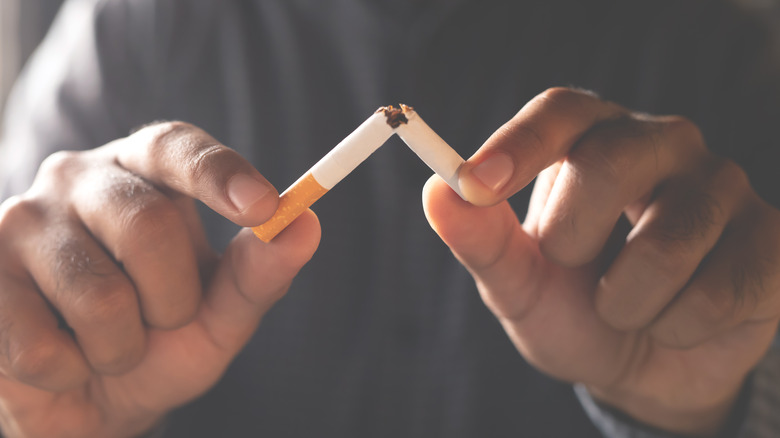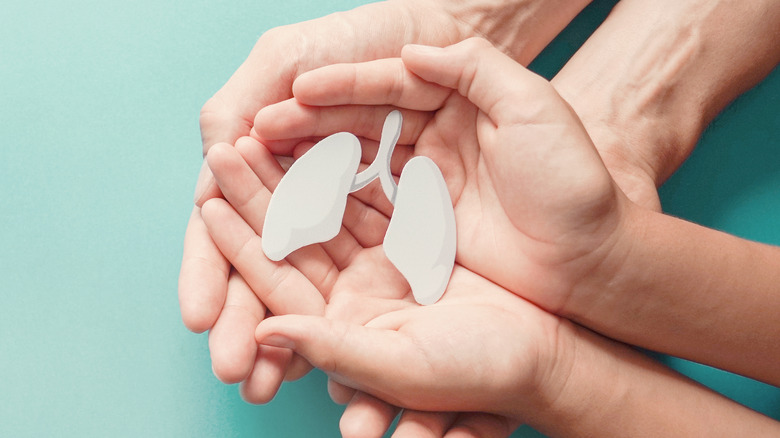What Really Happens To Your Lungs When You Quit Smoking
Are you ready to quit smoking? Maybe you've already stopped and you're are curious about the progress your lungs are making in recovery. You know that quitting is good for you, good for your bank account, and for everyone around you. However, what is really going on inside your lungs when you quit?
Smoking increases your risk of developing stroke, heart disease, and lung cancer, according to the Centers for Disease Control and Prevention. Smoking damages the alveoli, or tiny air sacs, in the airways of your lungs, which can cause chronic obstructive pulmonary disease (COPD). COPD may evolve into lung diseases, such as emphysema and chronic bronchitis. According to the Mayo Clinic, symptoms of COPD include wheezing, trouble breathing, coughing, and mucus. You are 12 to 13 times more likely to die from COPD than a nonsmoker, and smoking can worsen an asthma attack or trigger one if you have the condition (via the CDC).
After you finish smoking a cigarette, your blood pressure and heart rate go back down to normal levels within 20 minutes (via WebMD). In that short amount of time, your body begins the healing process, proving you can still bounce back from your bad habit. Here's what happens to your lungs after you quit smoking.
Your lungs when you quit smoking
Carbon monoxide is a harmful toxin in cigarette smoke, and it blocks oxygen from getting to your lungs and blood. If you inhale a lot in a short period of time, you'll suffocate. In as little as 12 hours after quitting, your lungs will start to heal by cleansing themselves of carbon monoxide (via Medical News Today). After 12 hours of not smoking, you'll experience an increase in oxygen.
When you smoke, your bronchial tubes become inflamed, making it difficult to breathe. However, after just 72 hours of not smoking, the inflammation in those tubes starts to go away. As a result, you'll find it easier to breathe, and you might experience increased energy (via WebMD).
The cilia — tiny, delicate hair-like structures in your lungs — have healed substantially at the 9-month mark after quitting smoking. Your cilia help move mucus out of your lungs and fight off infections and work much better when you're not smoking. You may notice a drop in lung infections around this time (via Medical News Today). According to WebMD, in 10 years, your risk of lung cancer will fall by 50%, compared to a smoker. Celebrate along with your body when you quit smoking.


